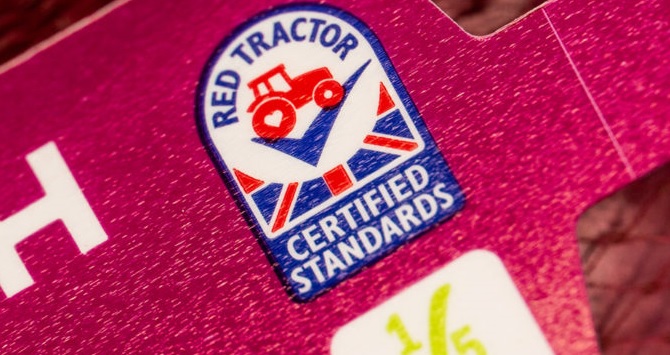
The next steps of the independent evaluation of the UK’s farm assurance schemes have been announced by the commissioners of the newly launched review group.
The UK Farm Assurance Review project will focus on repurposing Red Tractor and the UK’s industry-wide farm assurance network for a post-Brexit world.
It was jointly set up by the NFU and AHDB, along with NFU Cymru, the Ulster Farmers' Union and NFU Scotland.
It follows industry backlash over Red Tractor's now-dropped Greener Farms Commitment (GFC) environmental module, which was due to launch last month.
Farm leaders said that more granular, technical and practical elements of the GFC should have been consulted on more widely with the industry before it was unveiled.
Fears were raised that the GFC would slowly evolve into a requirement for market access and would mean farmers footing the bill for putting in place sustainability measures on behalf of retailers.
So far, three independent commissioners have been appointed as part of the UK Farm Assurance Review.
They will be responsible for setting areas for investigation, developing an engagement plan and establishing a timeline to ensure outcomes for the industry.
Dr Llewellyn, who is the lead commissioner and former vice-chancellor of Harper Adams University, will be working with three other commissioners.
They are James Withers, ex-CEO of Scotland Food and Drink, Mark Suthern, the chair of Trustees of the Farming Community Network, and a fourth commissioner whose appointment is in progress.
Amongst other topics, the project will include an assessment of best practice and consideration of how methods of assurance can provide value to farmers in a fast-changing environment.
It will also provide an evaluation of the relationship between assurance and regulation.
Emphasising a requirement for comprehensiveness and openness, Dr Llewellyn said the programme of work will cover seven distinct stages.
"It will be aimed at letting anyone, or any organisation, that wants to share their views on this important subject be able to do that, regardless of where they sit in the supply chain.
"We expect to involve farmers and farmer organisations, policy makers, food processors, retailers and consumer groups, as well as relevant trade associations and representative bodies.
"The work will go on until the end of the year, and periodic updates on progress will be issued to the farming and food community."
The commissioners will be seeking contributions to the review over the next few months via an online survey, submissions of evidence from representative bodies and interviews and online focus group discussions.
Dr Llewellyn said: "We want to ensure that we understand what works, and what doesn’t work, with assurance systems, so as to recommend ways in which the operating environment for the farming industry can be improved.
“Our evidence gathering will also involve direct engagement by the commissioners with stakeholders across the supply chain in a series of meetings being organised at agricultural shows and events over the summer."
